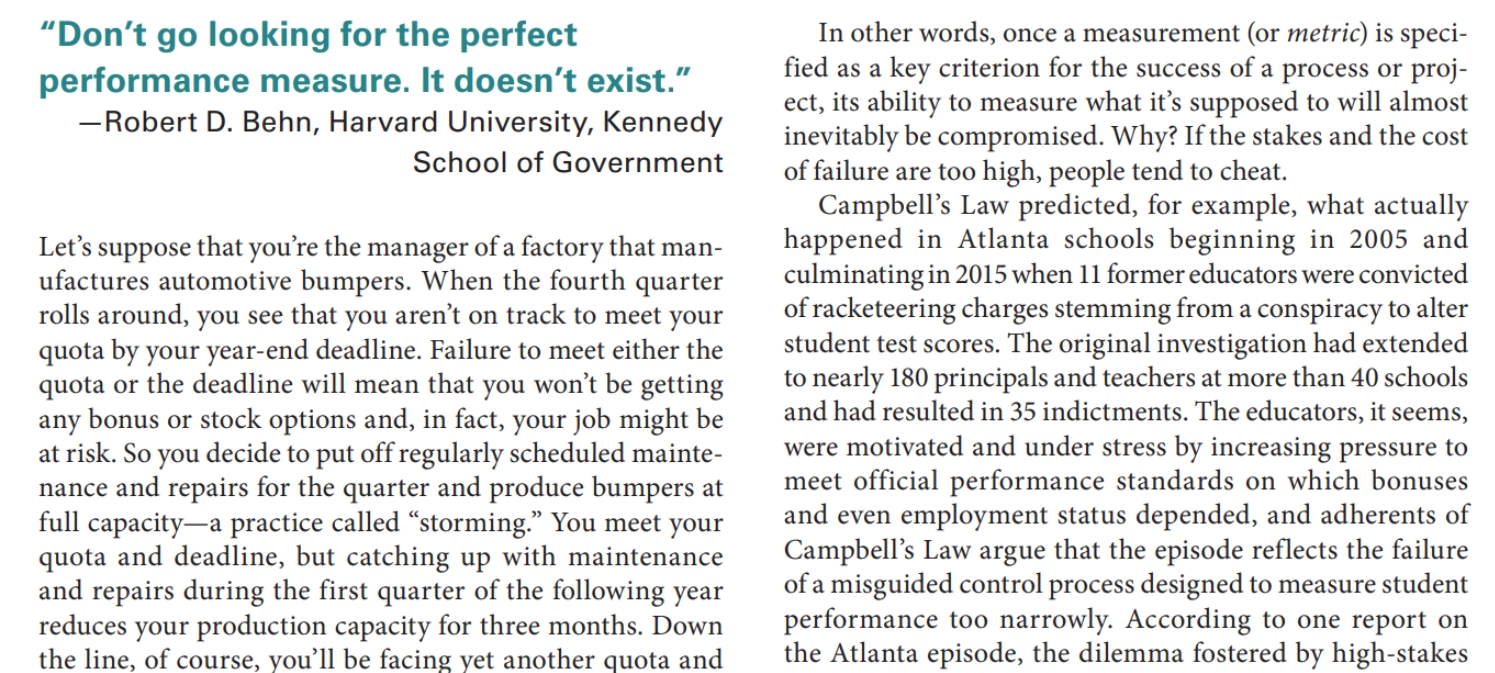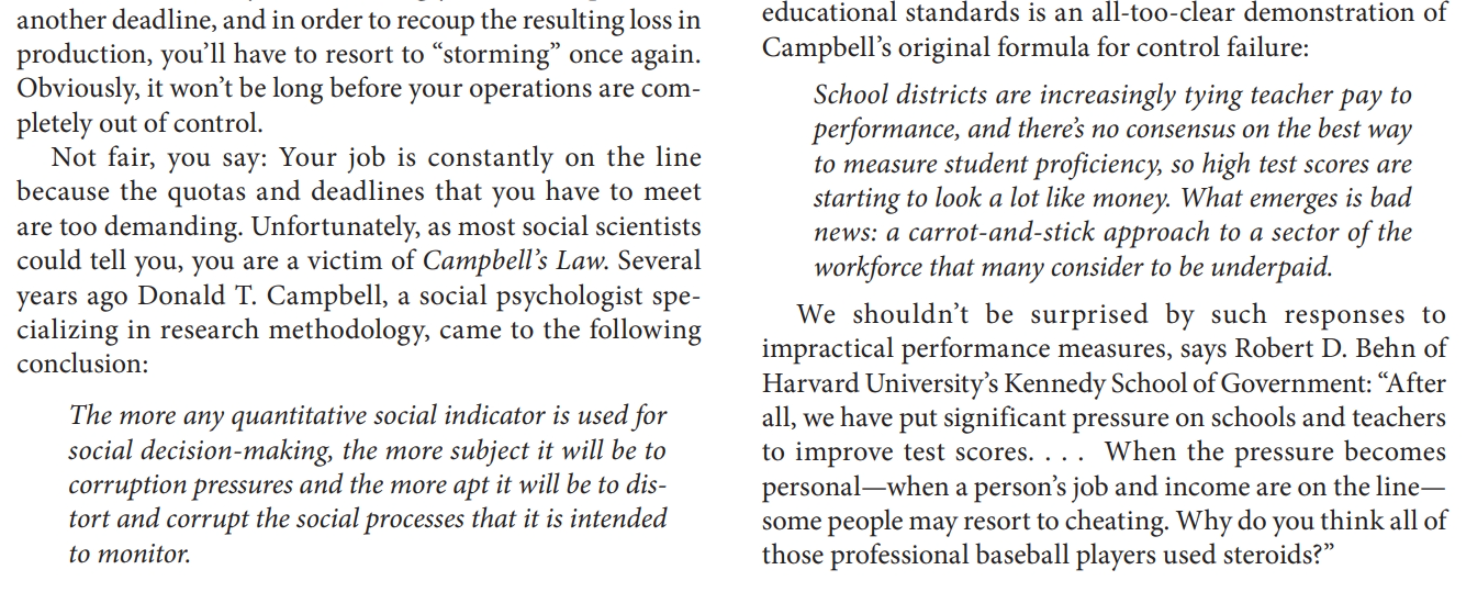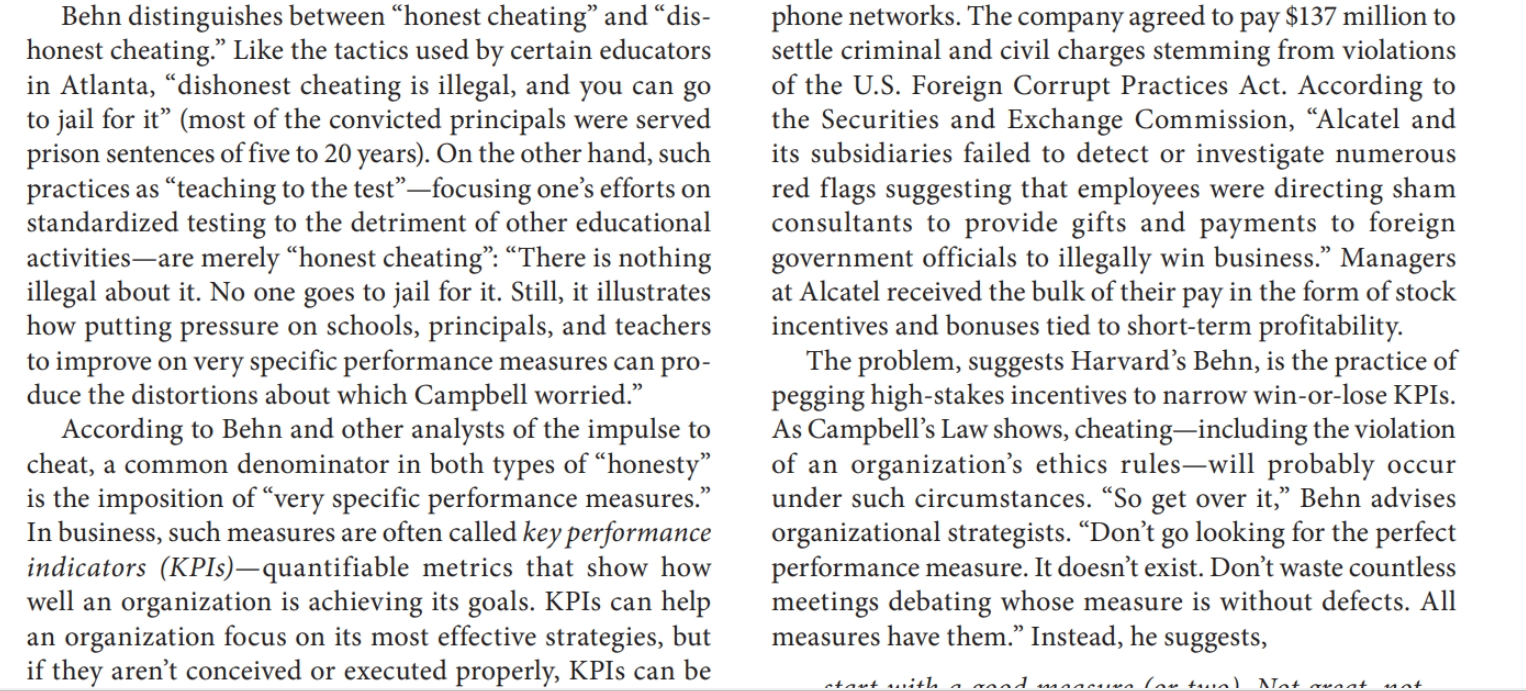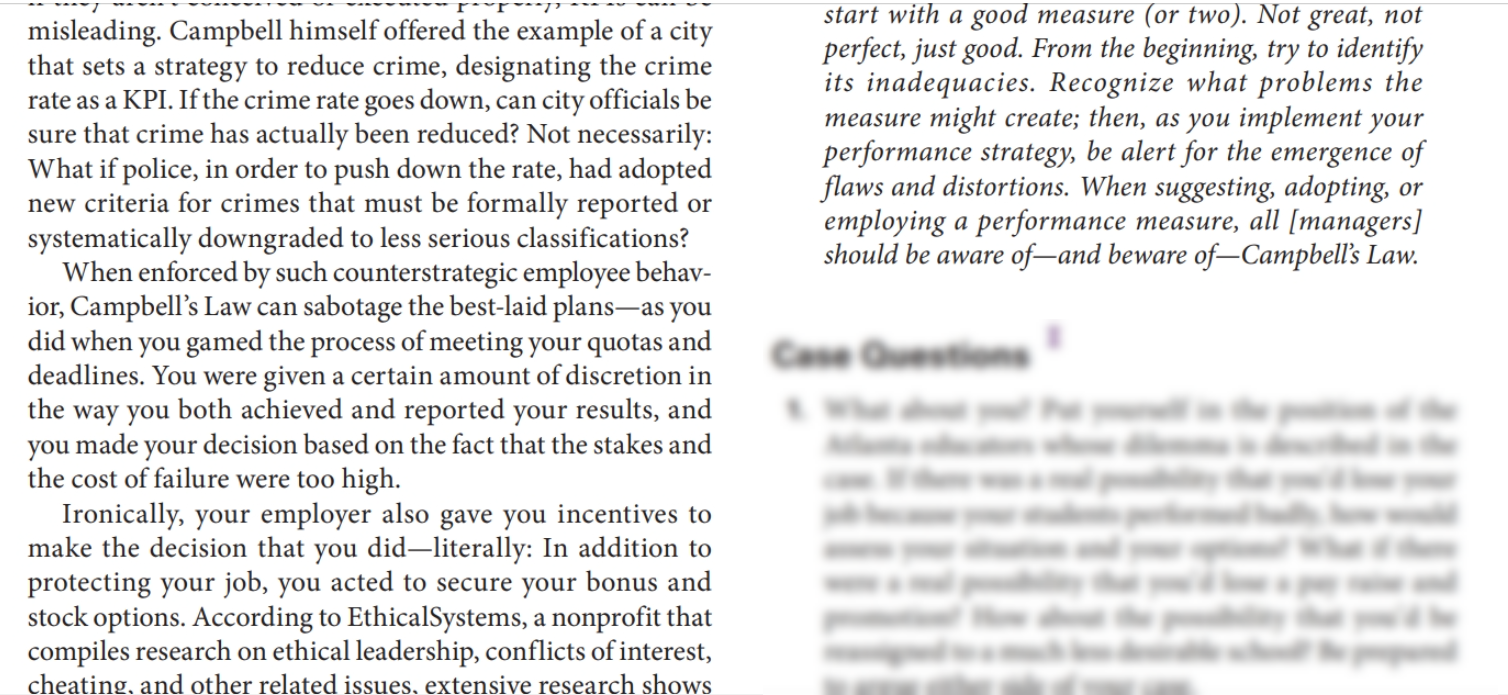MANAGEMENT AT WORK: Read the following Article below and then answer questions 1-5.
- Introduction of the Case: Overview of the FACTS
- Describe the situation regarding the KPIs
- Describe the difference between honest and dishonest cheating
- Describe the penalties for not meeting the KPIs
- Describe any other pertinent facts
- Analysis of Situation: Description of the Ethical ISSUES
- What are the ethical implications who is being affected
- Give some examples of what might be causing the ethical situation
- Perfect performance demands
- Consequences of failure to meet quotas
- Risk of job
- Other examples of causes
- Discussion: Explanation of OPTIONS and Consequences
- What are some options available for employees
- What would be the consequences of each
- Proposed Change: Your RECOMMENDATION from the Options discussed above
- In your opinion, what would be the best option described above
- Defend and support your suggestion: What is your DECISION-BASIS
- How would you defend your suggestion
- How would you support your suggestion (theory, experience, prior case, etc.)
ARTICLE:


2ND PAGE



"Don't go looking for the perfect performance measure. It doesn't exist." -Robert D. Behn, Harvard University, Kennedy School of Government Let's suppose that you're the manager of a factory that manufactures automotive bumpers. When the fourth quarter rolls around, you see that you aren't on track to meet your quota by your year-end deadline. Failure to meet either the quota or the deadline will mean that you won't be getting any bonus or stock options and, in fact, your job might be at risk. So you decide to put off regularly scheduled maintenance and repairs for the quarter and produce bumpers at full capacity-a practice called "storming." You meet your quota and deadline, but catching up with maintenance and repairs during the first quarter of the following year reduces your production capacity for three months. Down the line, of course, you'll be facing yet another quota and In other words, once a measurement (or metric) is specified as a key criterion for the success of a process or project, its ability to measure what it's supposed to will almost inevitably be compromised. Why? If the stakes and the cost of failure are too high, people tend to cheat. Campbell's Law predicted, for example, what actually happened in Atlanta schools beginning in 2005 and culminating in 2015 when 11 former educators were convicted of racketeering charges stemming from a conspiracy to alter student test scores. The original investigation had extended to nearly 180 principals and teachers at more than 40 schools and had resulted in 35 indictments. The educators, it seems, were motivated and under stress by increasing pressure to meet official performance standards on which bonuses and even employment status depended, and adherents of Campbell's Law argue that the episode reflects the failure of a misguided control process designed to measure student performance too narrowly. According to one report on the Atlanta episode, the dilemma fostered by high-stakes another deadline, and in order to recoup the resulting loss in production, you'll have to resort to "storming" once again. Obviously, it won't be long before your operations are completely out of control. Not fair, you say: Your job is constantly on the line because the quotas and deadlines that you have to meet are too demanding. Unfortunately, as most social scientists could tell you, you are a victim of Campbell's Law. Several years ago Donald T. Campbell, a social psychologist specializing in research methodology, came to the following conclusion: The more any quantitative social indicator is used for social decision-making, the more subject it will be to corruption pressures and the more apt it will be to distort and corrupt the social processes that it is intended to monitor. educational standards is an all-too-clear demonstration of Campbell's original formula for control failure: School districts are increasingly tying teacher pay to performance, and there's no consensus on the best way to measure student proficiency, so high test scores are starting to look a lot like money. What emerges is bad news: a carrot-and-stick approach to a sector of the workforce that many consider to be underpaid. We shouldn't be surprised by such responses to impractical performance measures, says Robert D. Behn of Harvard University's Kennedy School of Government: "After all, we have put significant pressure on schools and teachers to improve test scores. ... When the pressure becomes personal-when a person's job and income are on the linesome people may resort to cheating. Why do you think all of those professional baseball players used steroids?" Behn distinguishes between "honest cheating" and "dishonest cheating." Like the tactics used by certain educators in Atlanta, "dishonest cheating is illegal, and you can go to jail for it" (most of the convicted principals were served prison sentences of five to 20 years). On the other hand, such practices as "teaching to the test"-focusing one's efforts on standardized testing to the detriment of other educational activities-are merely "honest cheating": "There is nothing illegal about it. No one goes to jail for it. Still, it illustrates how putting pressure on schools, principals, and teachers to improve on very specific performance measures can produce the distortions about which Campbell worried." According to Behn and other analysts of the impulse to cheat, a common denominator in both types of "honesty" is the imposition of "very specific performance measures." In business, such measures are often called key performance indicators (KPIs)-quantifiable metrics that show how well an organization is achieving its goals. KPIs can help an organization focus on its most effective strategies, but if they aren't conceived or executed properly, KPIs can be phone networks. The company agreed to pay $137 million to settle criminal and civil charges stemming from violations of the U.S. Foreign Corrupt Practices Act. According to the Securities and Exchange Commission, "Alcatel and its subsidiaries failed to detect or investigate numerous red flags suggesting that employees were directing sham consultants to provide gifts and payments to foreign government officials to illegally win business." Managers at Alcatel received the bulk of their pay in the form of stock incentives and bonuses tied to short-term profitability. The problem, suggests Harvard's Behn, is the practice of pegging high-stakes incentives to narrow win-or-lose KPIs. As Campbell's Law shows, cheating-including the violation of an organization's ethics rules-will probably occur under such circumstances. "So get over it," Behn advises organizational strategists. "Don't go looking for the perfect performance measure. It doesn't exist. Don't waste countless meetings debating whose measure is without defects. All measures have them." Instead, he suggests, misleading. Campbell himself offered the example of a city that sets a strategy to reduce crime, designating the crime rate as a KPI. If the crime rate goes down, can city officials be sure that crime has actually been reduced? Not necessarily: What if police, in order to push down the rate, had adopted new criteria for crimes that must be formally reported or systematically downgraded to less serious classifications? When enforced by such counterstrategic employee behavior, Campbell's Law can sabotage the best-laid plans-as you did when you gamed the process of meeting your quotas and deadlines. You were given a certain amount of discretion in the way you both achieved and reported your results, and you made your decision based on the fact that the stakes and the cost of failure were too high. Ironically, your employer also gave you incentives to make the decision that you did-literally: In addition to protecting your job, you acted to secure your bonus and stock options. According to EthicalSystems, a nonprofit that compiles research on ethical leadership, conflicts of interest, start with a good measure (or two). Not great, not perfect, just good. From the beginning, try to identify its inadequacies. Recognize what problems the measure might create; then, as you implement your performance strategy, be alert for the emergence of flaws and distortions. When suggesting, adopting, or employing a performance measure, all [managers] should be aware of-and beware of-Campbell's Law. that decisions like yours "are frequently distorted by incentives." An example, suggests James Freis Jr., an attorney specializing in financial-industry regulation, "might be a contractor who knows his bonus depends on the fulfillment of certain contracts and so may be tempted to offer a bribe to a foreign official who is responsible for signing off on a license, customs duty, or shipment." Relatedly, some contractors may have a bonus tied to completion dates. As these dates approach and if the project is behind schedule, there may be a tendency to take construction shortcuts. Freis may well have been thinking about the case of Alcatel-Lucent SA, the world's largest supplier of land-line











